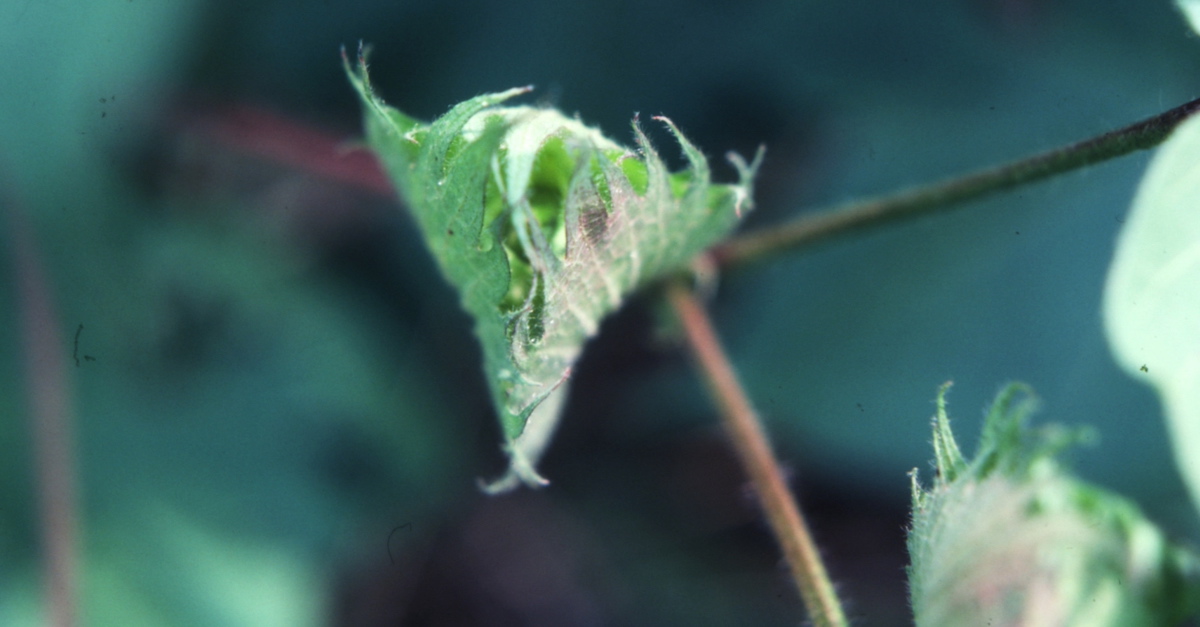Growers Impressed with First PhytoGen WideStrike 3 Enlist Variety
The first cotton growers to plant PhytoGen brand PHY 490 W3FE say the combination of PhytoGen germplasm and new technologies helped them work smarter and increase cotton production.
New in 2016, PHY 490 W3FE was the first variety available with the Enlist cotton trait and WideStrike 3 Insect Protection. The Enlist cotton trait gives producers tolerance to three herbicide modes of action – new 2,4-D choline, glufosinate and glyphosate – to help eliminate tough-to-control and resistant weeds. A combination of glyphosate and 2,4-D choline, Enlist Duo herbicide with Colex-D technology is a key part of the Enlist weed control system.
Although Enlist Duo is not yet registered for use on Enlist cotton, growers were able to take advantage of full glufosinate tolerance for enhanced weed control.
WideStrike 3, the first three-gene Bt technology in cotton, provides season-long insect protection against a wide spectrum of damaging lepidopteran pests, including improved control of cotton bollworm.
Members of the PhytoGen Horizon Network planted PHY 490 W3FE this past season across the Cotton Belt. This elite group of cotton producers was the first to raise the variety and will be on the forefront of other advancements in the pipeline from PhytoGen.
Tony Varisco of Bryan, TX, says PHY 490 W3FE started strong and finished strong with good yield and excellent fiber quality.
“The emergence was outstanding, and that gave us a jump start,” Varisco says. “Later on, it settled down, and I liked that because we used less plant growth regulator.”
Varisco said PHY 490 W3FE yielded nearly 3 bales to the acre with a USDA loan value of 56 cents. He thinks the variety has 4-bale potential in his area, but the late summer weather didn’t cooperate with him in 2016.
In past seasons, PhytoGen brand PHY 499 WRF was a favorite variety for Varisco, and he sees PHY 490 W3FE as an improvement, especially with the fiber quality. He anticipates the new traits will help him control yield-robbing weeds and pests.
Ginner and cotton producer Gene West from Newton Grove, NC, agrees.
“Over the past four to five years, PhytoGen varieties have been bred to address two of our biggest concerns – fiber quality and glyphosate-resistant weeds,” West says. “PhytoGen has brought both at the same time, along with other improvements such as WideStrike 3.”
West’s assessment of PHY 490 W3FE was similar to Varisco’s – excellent seedling vigor, easier growth management and better control of cotton bollworm pressure. Plus, he says the Enlist weed control system is going to be a great fit for his area, which has major issues with glyphosate-resistant Palmer amaranth.
“The Enlist weed control system, once Enlist Duo is registered, will give us a broader application window with low volatility and drift,” West says. “We farm in a diversified area where a cotton field might have three other crops around it, and I can’t take a risk with drift.”
West Texas doesn’t have the same crop diversification as North Carolina, but Lubbock grower Casey Jones says he’s excited about the new varieties and technologies PhytoGen is bringing to the market.
He planted a PhytoGen variety trial this past season that included several experimental varieties with the Enlist cotton trait and WideStrike 3. He says he thinks the pipeline looks strong and that West Texas growers will benefit from these new technologies.
“We are excited about the Enlist weed control system,” Jones says. “We need additional modes of action to control resistant weeds, because we are fighting a hard situation and some people are facing train wrecks.”
Alabama cotton grower Nick McMichen agrees the Enlist weed control system will help growers with significant weed problems. Glyphosate-resistant marestail has become an issue in his area, and he believes Enlist Duo will be part of the solution.
“Enlist Duo, when approved, combined with residuals, will be another tool we can use to control these weeds,” McMichen says. “I like the fact that it has low drift and volatility, and it will be a good fit on our farm, especially when we can plant Enlist cotton and soybeans.”
McMichen planted PHY 490 W3FE in 2016 and was pleased with the yield and quality.
“PHY 490 W3FE had excellent seedling vigor and was easily managed,” he says. “It was a very tough variety under stress that yielded 1,000 pounds to the acre in a situation where we only expected 750 pounds. It definitely has a fit on our farm.”
With the initial success of PHY 490 W3FE, growers are looking forward to new PhytoGen brand varieties with the Enlist cotton trait and WideStrike 3 Insect Protection. Hank King, U.S. leader for PhytoGen cottonseed, says growers can expect as many as eight new PhytoGen brand varieties with these traits in 2017.
“Early next year, we will announce our new variety lineup for 2017, which will include several new PhytoGen varieties with the Enlist cotton trait and WideStrike 3,” King says. “These varieties will offer a range of maturities with excellent emergence and fiber quality, plus native traits such as resistance to bacterial blight.”
Future native trait additions to the WideStrike 3 portfolio include tolerance to fusarium and resistance to root-knot and reniform nematodes.
King says the diverse germplasm and trait offerings will allow growers to select varieties based on their unique geographies and agronomic conditions.
“Cotton growers are continually aiming for higher production, and PhytoGen offers the varieties and technologies that allow them to achieve higher yields with better quality for greater profitability and return on their investment,” King says. “PhytoGen succeeds when we continue to help our grower customers thrive in cotton production.”
Source – PhytoGen









